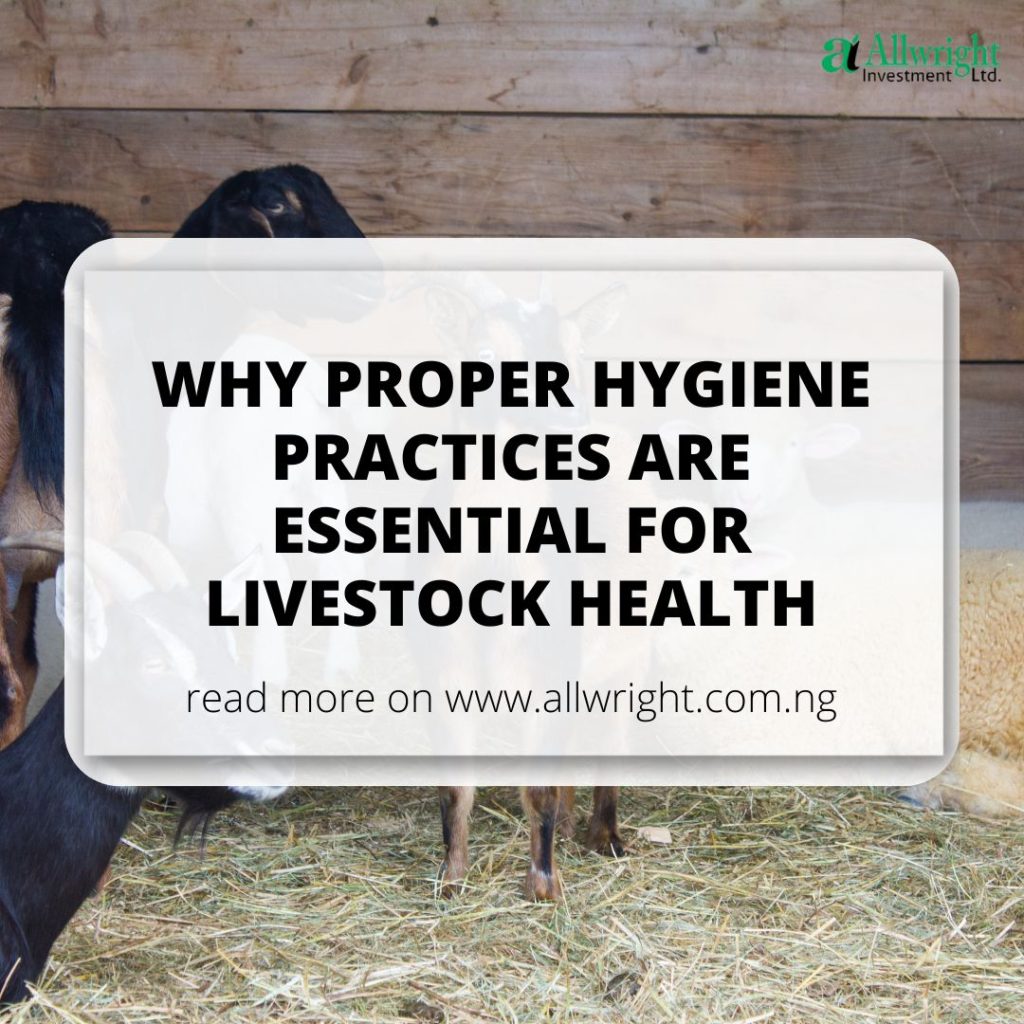
Maintaining proper hygiene practices is crucial to ensuring the health and productivity of livestock. For livestock farmers and animal health professionals, neglecting cleanliness can result in widespread illness, reduced productivity, and increased operational costs.
The Importance of Livestock Hygiene
Livestock hygiene refers to practices that maintain cleanliness in animal housing, feeding areas, and handling equipment. When hygiene standards are not met, animals are more prone to diseases such as foot rot, respiratory infections, and mastitis. This not only impacts animal welfare but also affects your business through reduced production and increased medical expenses.
High Disease Outbreaks Leading to Losses
Many livestock farmers experience financial strain due to disease outbreaks that could have been avoided through better hygiene practices. Diseases can spread rapidly within a herd, leading to significant losses in terms of animal fatalities, veterinary costs, and reduced productivity. This often translates to higher operational costs and reduced profits.
Contaminated Feed and Water
Contaminated feed and water sources are a common issue that can affect livestock health. Bacteria, parasites, and toxins in feed and water can lead to gastrointestinal diseases, reduced appetite, and weight loss. Ensuring clean feed and water systems is a critical aspect of livestock hygiene that directly impacts the growth and well-being of your animals.
Key Hygiene Practices for Livestock Health
1. Clean and Dry Housing Proper housing is vital for the comfort and safety of your livestock. Regularly cleaning animal pens, barns, and shelters helps reduce the buildup of harmful bacteria, parasites, and pests. Providing dry bedding is essential, as damp environments promote the growth of pathogens that can cause foot infections and other health issues.
2. Routine Manure Management Manure is a breeding ground for bacteria, flies, and other disease-carrying pests. Implementing a regular manure management system can prevent the contamination of water sources and reduce the risk of disease outbreaks. Proper manure handling also promotes better air quality in animal housing areas, which is important for respiratory health.
3. Disinfection of Equipment and Facilities Cleaning and disinfecting feeding and watering equipment, as well as tools used for animal care, can significantly reduce the risk of disease transmission. This is particularly important in shared facilities where multiple animals are housed together. Using veterinary-approved disinfectants ensures that pathogens are effectively eliminated without harming your animals.
4. Personal Hygiene for Workers Farm workers are often in direct contact with livestock and can inadvertently introduce or spread diseases. Ensuring that workers follow proper hygiene practices, such as wearing clean clothing, washing hands, and disinfecting boots before entering livestock areas, helps prevent disease transmission between animals and humans.
5. Regular Health Checks and Vaccinations Maintaining good hygiene practices should be complemented by regular health checks and vaccinations. Early detection of potential health issues allows for prompt treatment and prevents the spread of diseases within your herd. Vaccinations are an essential preventive measure that ensures livestock are protected against common diseases.
High Veterinary Costs Due to Poor Hygiene
When hygiene is neglected, veterinary expenses can quickly escalate. Regular veterinary checkups and proper vaccination schedules can only do so much if basic hygiene practices are not followed. By maintaining cleanliness on your farm, you can reduce the likelihood of disease outbreaks, thus lowering the need for costly medical interventions.
Maintaining proper hygiene practices is an investment in the long-term health and productivity of your livestock. By prioritizing cleanliness in animal housing, handling equipment, and feeding areas, you can prevent disease outbreaks, reduce veterinary costs, and improve overall farm efficiency.
For more expert advice and services tailored to your farm’s needs, contact Allwright Investment Ltd. today. Together, we can ensure a healthier future for your livestock.
Invest in Allwright Investment Limited today!

Leave a comment
You must be logged in to post a comment.